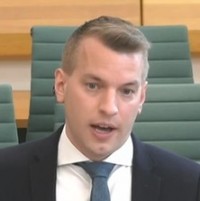 The BBC has defended itself from a fresh attack from the news publishing industry – claiming there is “no evidence” it is crowding out regional publishers.
The BBC has defended itself from a fresh attack from the news publishing industry – claiming there is “no evidence” it is crowding out regional publishers.
Both the corporation and Ofcom have been criticised by the News Media Association after the broadcasting watchdog published an updated BBC operating licence.
The NMA has dubbed the new licence a “missed opportunity” to prevent the BBC from further expanding its local digital news offering.
The fresh row comes after Ofcom gave the green light to the BBC’s expansion, which will create 131 new jobs as a result of planned investment in local news services across the country while at the same time axeing 139 jobs in local radio and TV services.
In its ruling in December, Ofcom said the move will have a likely impact of less than 1pc on the total revenues of online local news providers.
But chief executive Owen Meredith, pictured, said: “The update of the BBC operating licence is a missed opportunity for Ofcom to place clear guardrails around the BBC’s impact upon commercial providers, particularly local news media providers.
“Instead, the BBC has been given a free pass to expand its offering, using the licence fee to compete directly with commercial providers, to the detriment of our wider media ecosystem and contrary to the recommendations of the Cairncross review.
“The government must now act via the mid term review to protect local news providers from the harmful effects of the BBC’s planned encroachment into local news.”
In response, a BBC spokesperson said: “We are reshaping our local services to increase the value we deliver to audiences across England and to ensure we keep pace with changing audience expectations and remain a cornerstone of local life for generations to come.
“There is no evidence that the BBC is crowding out other digital publishers. We work collaboratively across the industry and our partnership with the NMA has transformed coverage of local democracy across the UK.”
In granting the new licence, Ofcom has pledged to:
- Retain a condition in the operating licence for BBC News to provide high quality local, regional, national, UK and international news to UK audiences.
- Hold the BBC to its commitments on local radio in England relating to news and travel, breaking news and major incidents, and its contribution to local democracy.
- Retain the quota in the operating licence for 100pc of content to be speech during the breakfast peak on local radio in England.
- Rigorously monitor the impact of the all changes to BBC News, local radio in England (including levels of programme-sharing) and local radio in the Nations, and step in to impose additional licence conditions if audience needs are not being met.
Ofcom’s group director for broadcasting and online content Kevin Bakhurst said “We recognise that the BBC needs to adapt quickly to keep up with changes in what viewers and listeners want, and how they get their content.
“So we’re future-proofing our regulation to enable the BBC to transform and innovate, while safeguarding content that matters most to audiences.
“We’ve been particularly disappointed by the BBC’s lack of detail and clarity around planned changes to its services, which has led to a lot of uncertainty for audiences and industry.
“Our strict new reporting rules will ensure the BBC is held to a higher level of public accountability, requiring it to clearly explain its plans before going ahead, as well as evaluating whether they work.”





 Follow HTFP on Twitter
Follow HTFP on Twitter